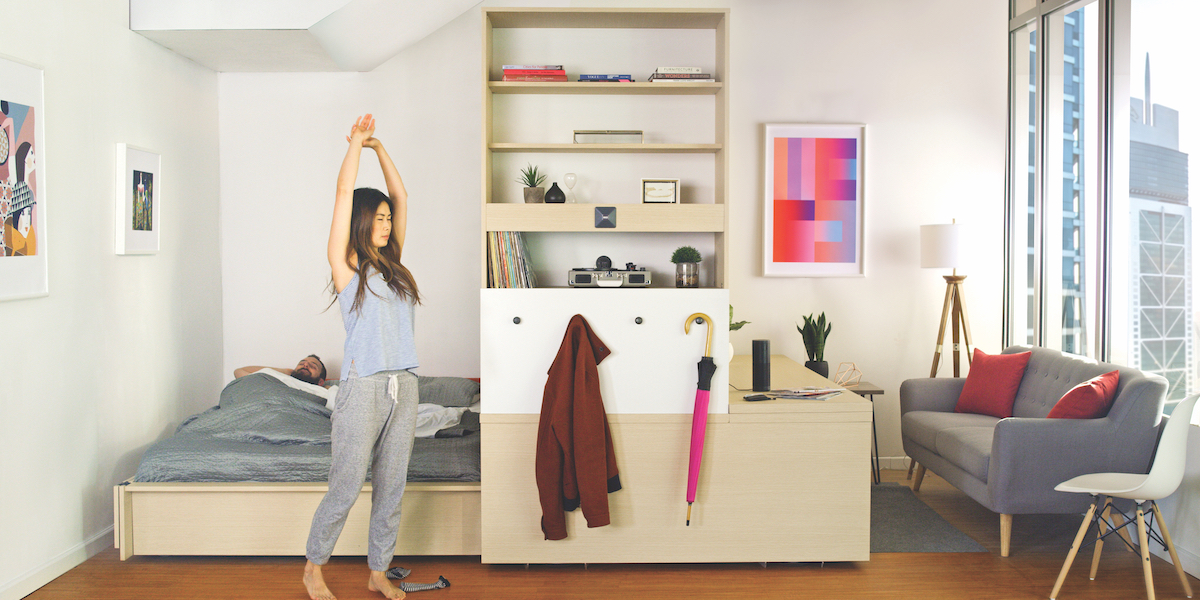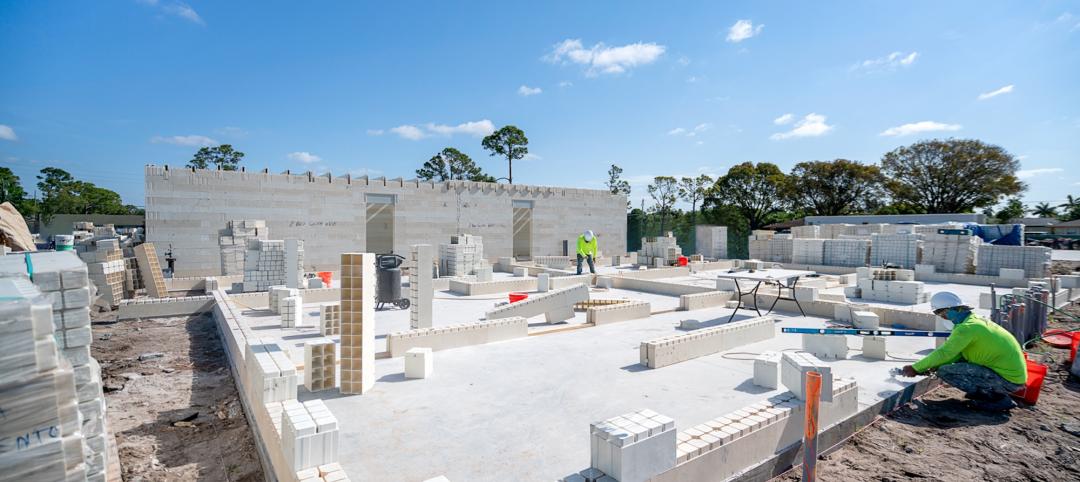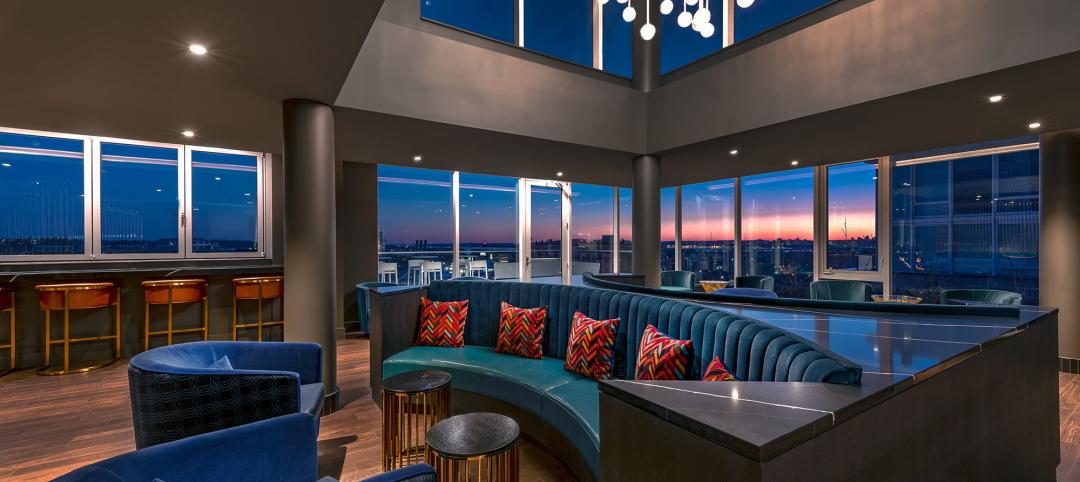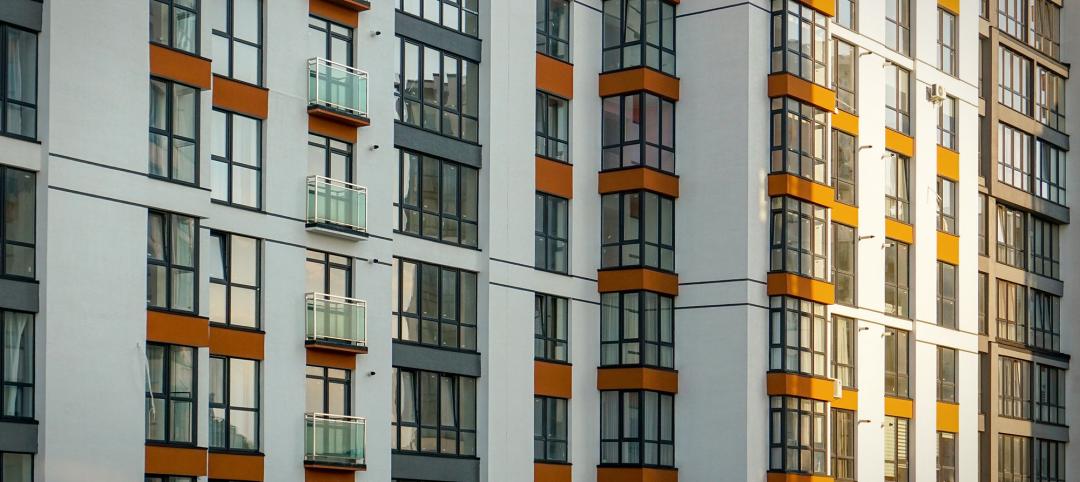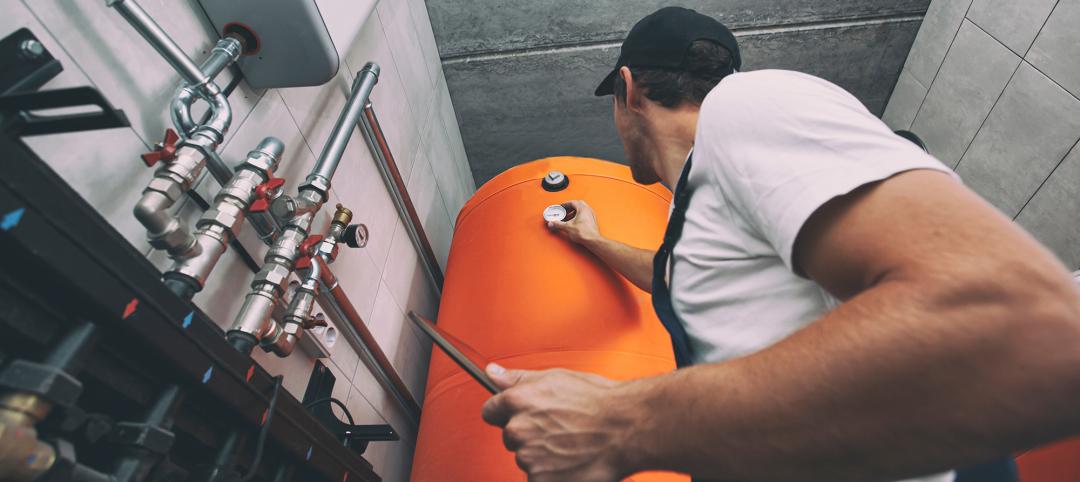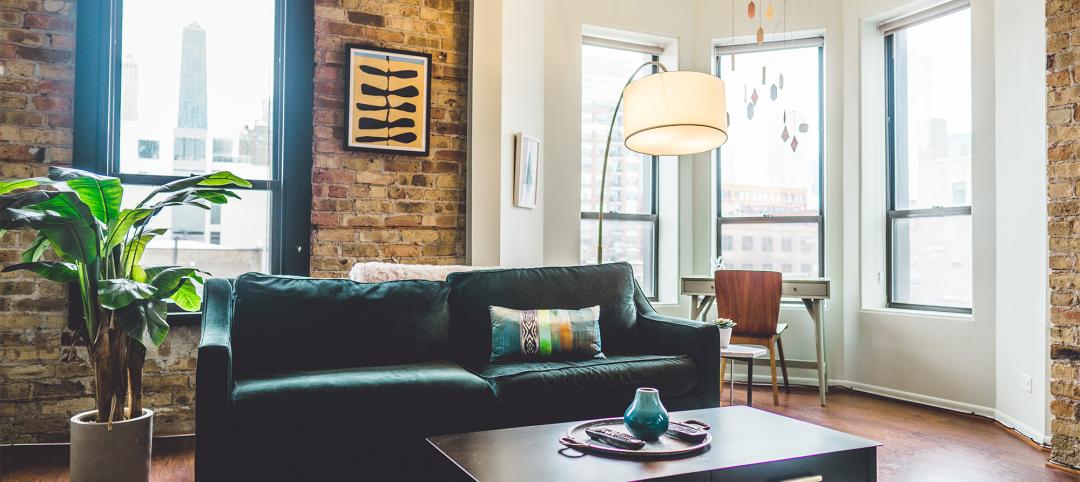What if furniture could have superpowers?
That’s the concept Hasier Larrea toyed with as he and his fellow MIT Media Lab graduate students—Carlos Rubio, Chad Bean, and Ivan Fernandez de Casadevante—explored how to use robotics to make interior spaces more efficient and usable.
That inquiry led to the founding four years ago of Boston-based Ori, Inc., which has developed two robotically controlled, space-saving furniture systems: Ori Studio Suite (and its Studio Suite Slim version), a movable structure that holds a bed, desk, table, and TV nook and has room for storage; and Ori Pocket Closet, which comes with similar accoutrements minus the bed.
SEE ALSO: What multifamily developers are saying about Ori Living's robotic interior system
To date, Ori has installed nearly 100 of its robotic furniture systems in more than 25 apartment buildings, primarily in Boston, Chicago, Miami, and San Francisco—cities where affordable rentals are scarce. But it took the inventor most of the decade to get market acceptance for what originally seemed like a pie-in-the-sky technology.
Larrea grew up in San Sebastián, in Spain’s Basque region. He played fútbol for Real Sociedad through high school and went on to earn BS and MS degrees in mechanical engineering at the University of Navarra. In 2011, he got an opportunity to work with Kent Larson, Director of the City Science research group at the MIT Media Lab.
Larrea and Larson challenged themselves to go beyond traditional thinking about interior spaces as “assigned” to a single function—a bedroom only, a living room only. “We wanted to bring mechanics software and control into a moving wall, to remove the physical constraints so that you could use as much of the space as possible,” said Larrea. They called the new field of research “robotic interiors.”
Starting in 2014 or so, Larrea, aided by his fellow grad students, developed several prototypes, many of them inspired by their work at MIT’s LEGO Mindstorms. The next crucial step was to standardize the product. “We wanted to create a kit of parts, so that every time we had a new idea—for electronics, or software, or safety—we wouldn’t have to start from scratch.” Standardization, they believed, was crucial to the success of the system. “There are only so many ways you can move things in three dimensions,” said Larrea.
After graduating from the MIT program in 2015, Larrea launched the company through the MIT delta v student entrepreneurship program. His thesis reviewer, the Media Lab’s Nicholas Negroponte, introduced him to industrial designer Yves Behar, whose FuseProject team came up with the brand name for the product: “ori,” a Japanese term meaning “to fold” (think “origami”).
Ori rented an apartment in Boston’s Seaport district to test the product. “We got random people to stay for a weekend over a two-year period, to see what they liked and didn’t like,” said Larrea. “The system proved to be incredibly robust.” After rigorous safety testing the system has been certified by UL.
I asked Larrea why the big furniture makers didn’t come up with such a system. “Furniture makers and robotics people don’t understand each other,” he said. “That’s where we saw the potential to bring these two fields together.”
Next up: The Ori “Cloud Bed,” a robotically controlled bed that descends from the ceiling, deus ex machina–style.
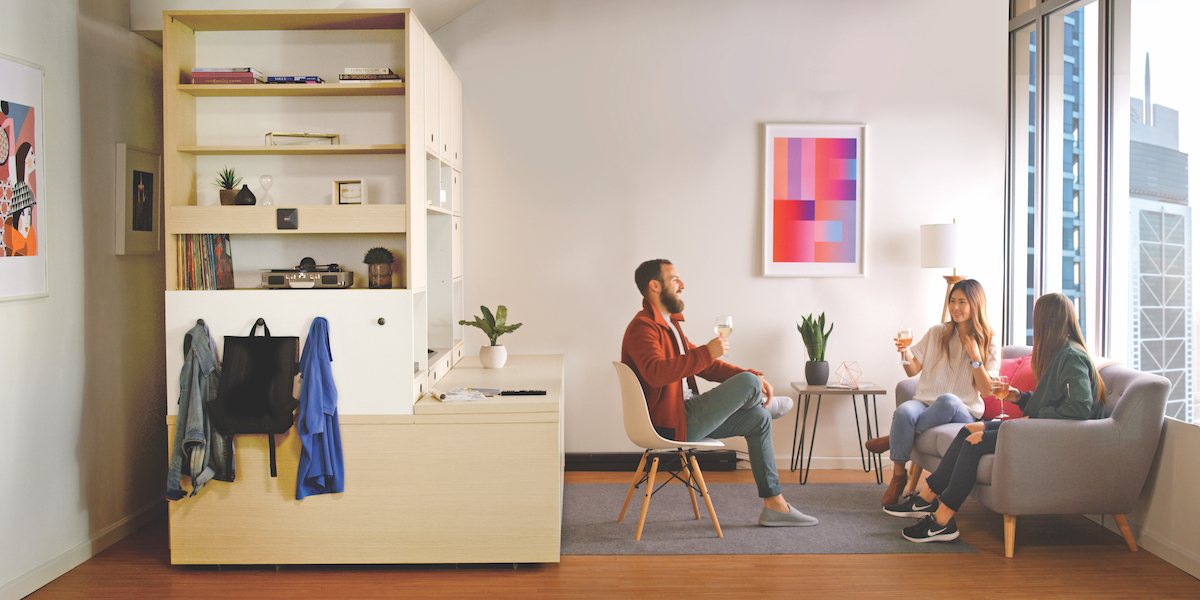
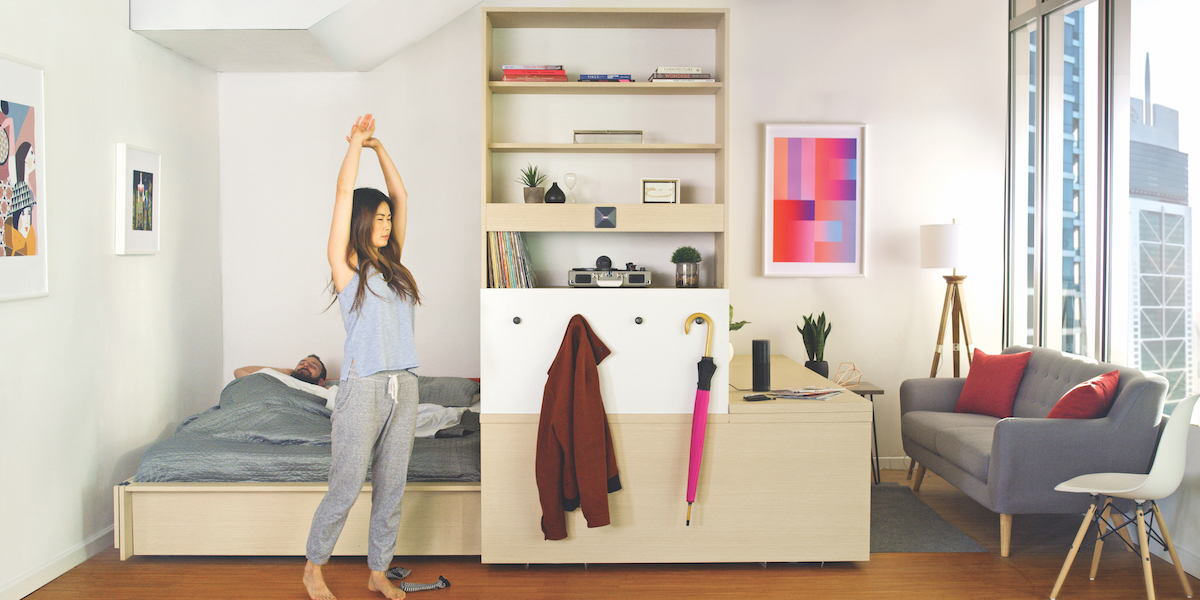 Ori Studio Suite in daytime position (top) and in nighttime position (bottom). Photos: Ori Living
Ori Studio Suite in daytime position (top) and in nighttime position (bottom). Photos: Ori Living
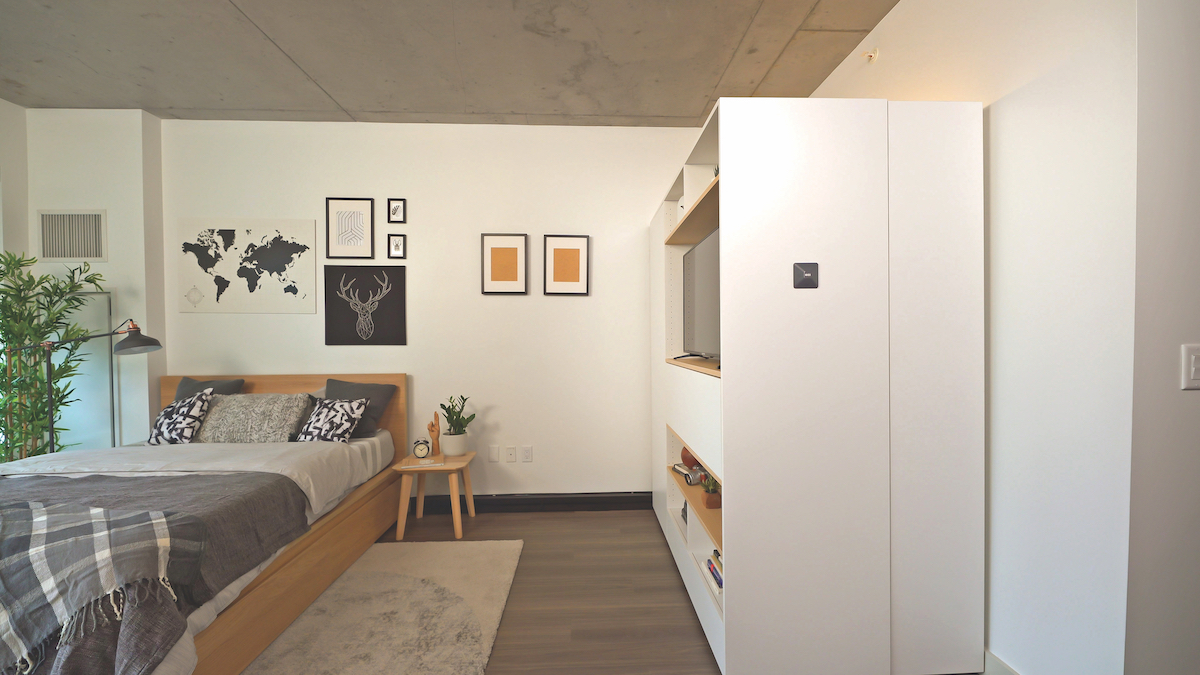
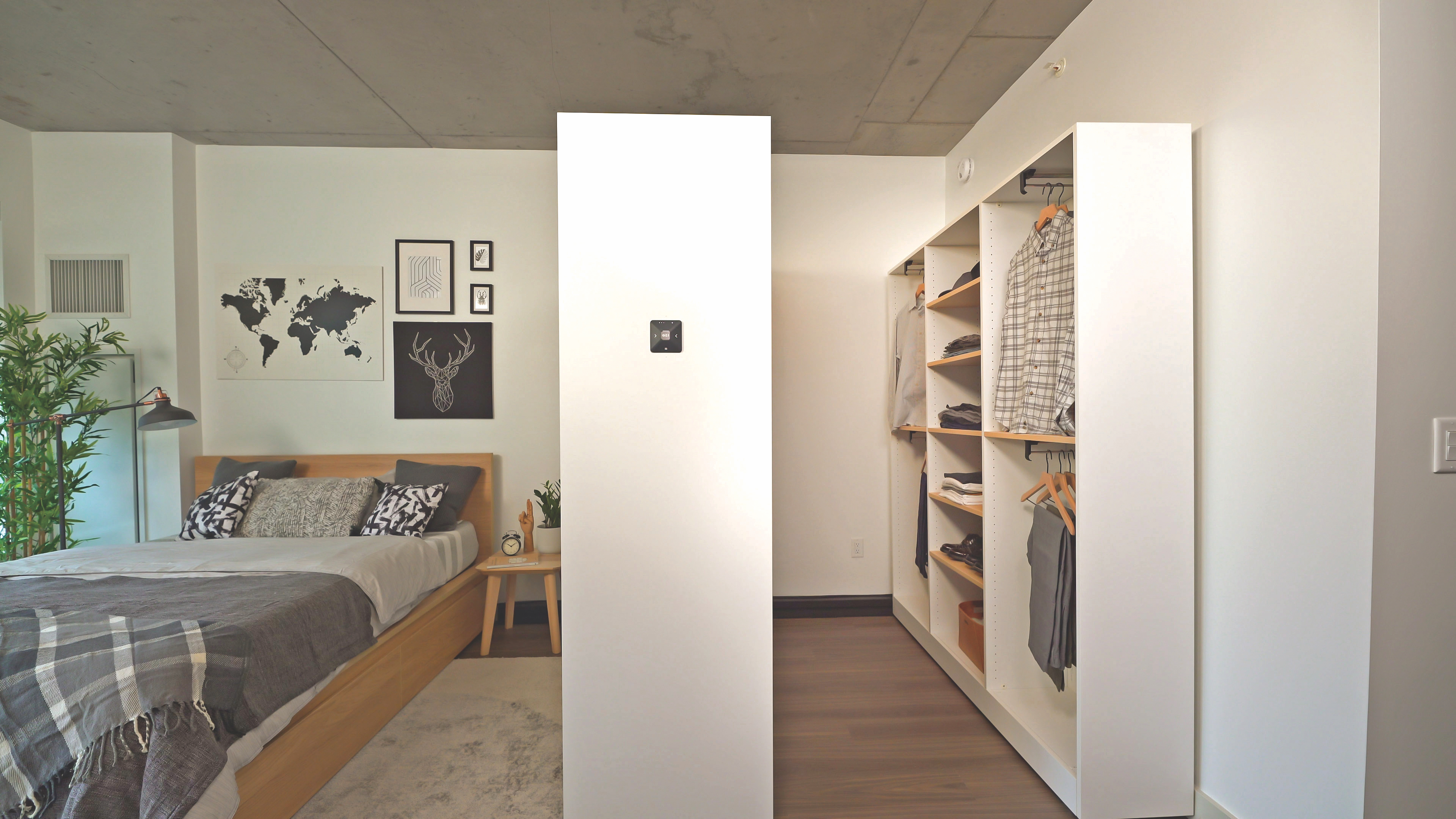 Ori Pocket Closet in closed position (top). It opens (via black button) for access to clothes, etc. (above). Pocket Closet comes with 110 cubic feet of storage, 140 inches of hanging space, a desk, 48-inch TV nook, LED lighting, three outlets, and two USB ports and adds the equivalent of 40 square feet of usable space to an apartment. Cost: $3,000 to $7,000. Photos: Ori Living
Ori Pocket Closet in closed position (top). It opens (via black button) for access to clothes, etc. (above). Pocket Closet comes with 110 cubic feet of storage, 140 inches of hanging space, a desk, 48-inch TV nook, LED lighting, three outlets, and two USB ports and adds the equivalent of 40 square feet of usable space to an apartment. Cost: $3,000 to $7,000. Photos: Ori Living
Related Stories
Building Tech | Feb 20, 2024
Construction method featuring LEGO-like bricks wins global innovation award
A new construction method featuring LEGO-like bricks made from a renewable composite material took first place for building innovations at the 2024 JEC Composites Innovation Awards in Paris, France.
Student Housing | Feb 19, 2024
UC Law San Francisco’s newest building provides student housing at below-market rental rates
Located in San Francisco’s Tenderloin and Civic Center neighborhoods, UC Law SF’s newest building helps address the city’s housing crisis by providing student housing at below-market rental rates. The $282 million, 365,000-sf facility at 198 McAllister Street enables students to live on campus while also helping to regenerate the neighborhood.
Multifamily Housing | Feb 16, 2024
5 emerging multifamily trends for 2024
As priorities realign and demographic landscapes transform, multifamily designers and developers find themselves in a continuous state of adaptation to resonate with residents.
MFPRO+ News | Feb 15, 2024
UL Solutions launches indoor environmental quality verification designation for building construction projects
UL Solutions recently launched UL Verified Healthy Building Mark for New Construction, an indoor environmental quality verification designation for building construction projects.
MFPRO+ News | Feb 15, 2024
Nine states pledge to transition to heat pumps for residential HVAC and water heating
Nine states have signed a joint agreement to accelerate the transition to residential building electrification by significantly expanding heat pump sales to meet heating, cooling, and water heating demand. The Memorandum of Understanding was signed by directors of environmental agencies from California, Colorado, Maine, Maryland, Massachusetts, New Jersey, New York, Oregon, and Rhode Island.
MFPRO+ News | Feb 15, 2024
Oregon, California, Maine among states enacting policies to spur construction of missing middle housing
Although the number of new apartment building units recently reached the highest point in nearly 50 years, construction of duplexes, triplexes, and other buildings of from two to nine units made up just 1% of new housing units built in 2022. A few states have recently enacted new laws to spur more construction of these missing middle housing options.
Multifamily Housing | Feb 14, 2024
Multifamily rent remains flat at $1,710 in January
The multifamily market was stable at the start of 2024, despite the pressure of a supply boom in some markets, according to the latest Yardi Matrix National Multifamily Report.
Sustainability | Feb 7, 2024
9 states pledge to accelerate transition to clean residential buildings
States from coast to coast have signed a joint agreement to accelerate the transition to pollution-free residential buildings by significantly expanding heat pump sales to meet heating, cooling, and water heating demand in coming years.
Multifamily Housing | Feb 5, 2024
Wood Partners transfers all property management operations to Greystar
Greystar and Wood have entered into a long-term agreement whereby Greystar will serve as property manager for all current and future Wood developed and owned assets.
Industry Research | Jan 31, 2024
ASID identifies 11 design trends coming in 2024
The Trends Outlook Report by the American Society of Interior Designers (ASID) is the first of a three-part outlook series on interior design. This design trends report demonstrates the importance of connection and authenticity.


